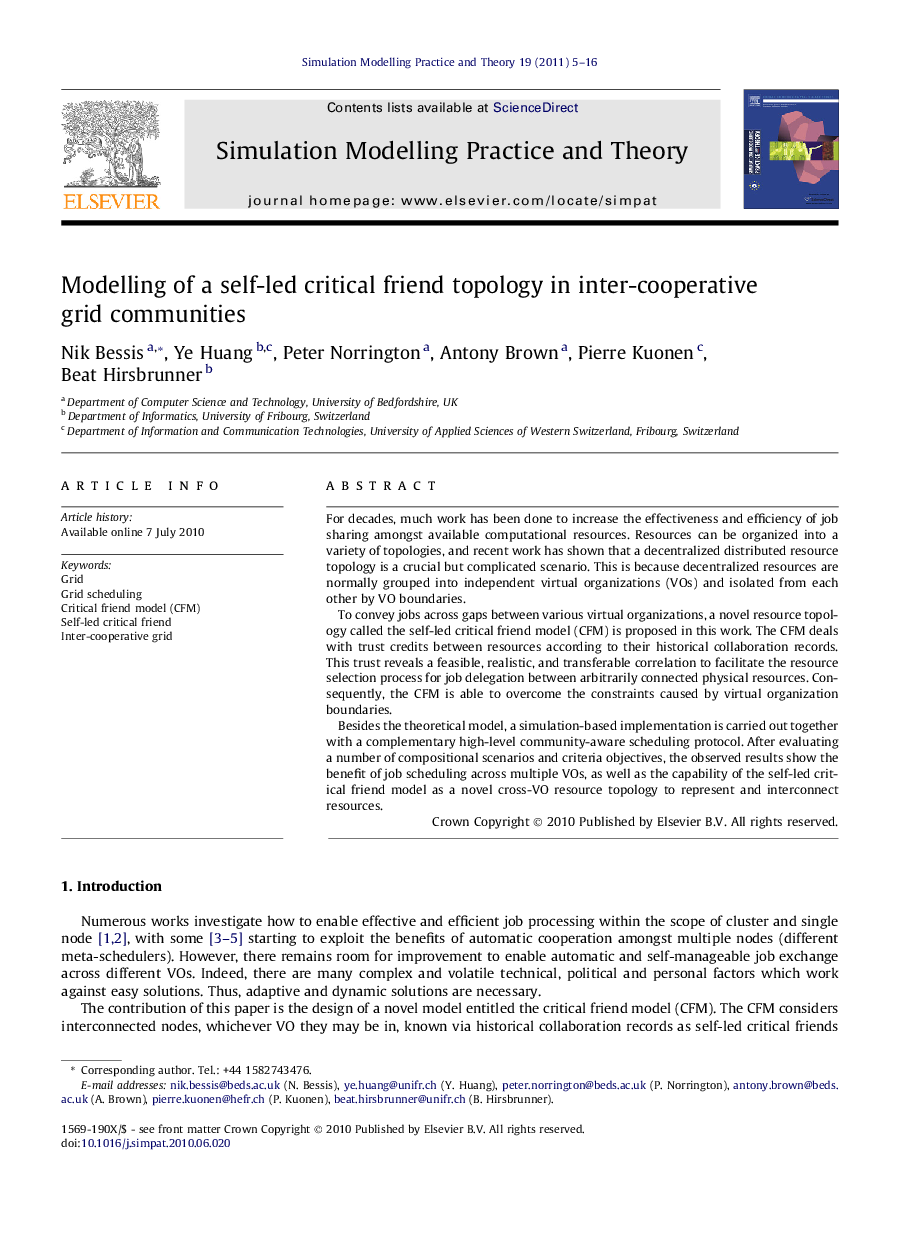| Article ID | Journal | Published Year | Pages | File Type |
|---|---|---|---|---|
| 491995 | Simulation Modelling Practice and Theory | 2011 | 12 Pages |
For decades, much work has been done to increase the effectiveness and efficiency of job sharing amongst available computational resources. Resources can be organized into a variety of topologies, and recent work has shown that a decentralized distributed resource topology is a crucial but complicated scenario. This is because decentralized resources are normally grouped into independent virtual organizations (VOs) and isolated from each other by VO boundaries.To convey jobs across gaps between various virtual organizations, a novel resource topology called the self-led critical friend model (CFM) is proposed in this work. The CFM deals with trust credits between resources according to their historical collaboration records. This trust reveals a feasible, realistic, and transferable correlation to facilitate the resource selection process for job delegation between arbitrarily connected physical resources. Consequently, the CFM is able to overcome the constraints caused by virtual organization boundaries.Besides the theoretical model, a simulation-based implementation is carried out together with a complementary high-level community-aware scheduling protocol. After evaluating a number of compositional scenarios and criteria objectives, the observed results show the benefit of job scheduling across multiple VOs, as well as the capability of the self-led critical friend model as a novel cross-VO resource topology to represent and interconnect resources.
